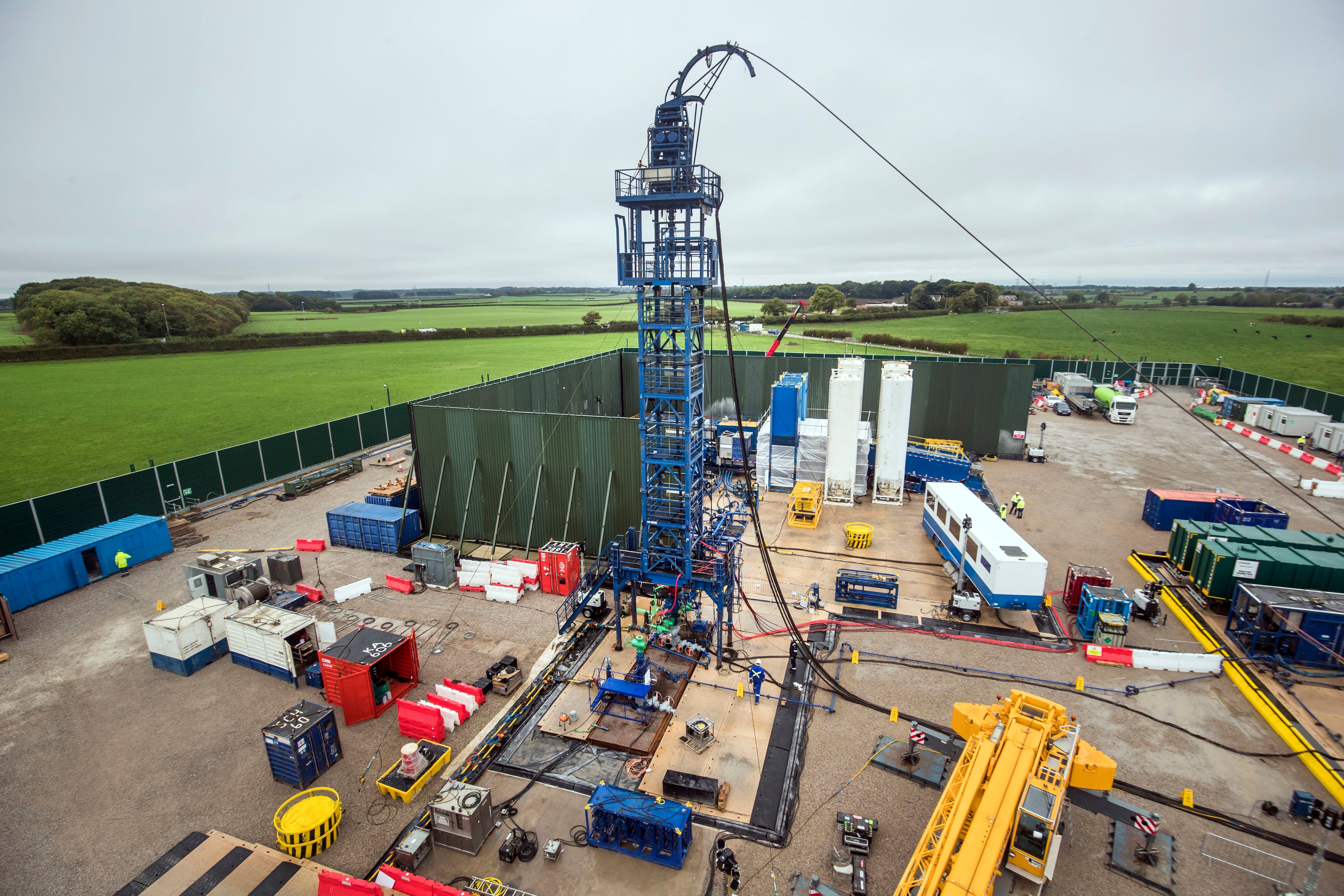Downing Street hints fracking ban could be lifted in energy bills package
The suggestion came as advisers warned that the UK’s gas reserves are too small to make a difference to consumer energy bills.

Your support helps us to tell the story
From reproductive rights to climate change to Big Tech, The Independent is on the ground when the story is developing. Whether it's investigating the financials of Elon Musk's pro-Trump PAC or producing our latest documentary, 'The A Word', which shines a light on the American women fighting for reproductive rights, we know how important it is to parse out the facts from the messaging.
At such a critical moment in US history, we need reporters on the ground. Your donation allows us to keep sending journalists to speak to both sides of the story.
The Independent is trusted by Americans across the entire political spectrum. And unlike many other quality news outlets, we choose not to lock Americans out of our reporting and analysis with paywalls. We believe quality journalism should be available to everyone, paid for by those who can afford it.
Your support makes all the difference.Downing Street has hinted that the fracking ban could be lifted when Liz Truss sets out a new package to help deal with the energy crisis.
At the beginning of this year, it seemed that more than a decade of controversy over fracking for gas in the UK was over, when energy company Cuadrilla announced that the country’s only two shale wells were to be abandoned.
But Russia’s invasion of Ukraine pushed energy prices and security to the top of the agenda, prompting calls for the Government to rethink the moratorium it had imposed on fracking in England in 2019 in the wake of tremors in Lancashire.
In her campaign to become Prime Minister, Ms Truss said in an interview: “I support exploring fracking in parts of the United Kingdom where that can be done.”
On Wednesday, the Prime Minister’s press secretary said: “She made clear her position during the campaign but I’m not going to get into what’s in this energy package.”
He insisted that the Conservative Party’s 2019 manifesto – which said the Tories will not support fracking unless the science shows categorically that it can be done safely – still stands in full.
But he added: “I’m not going to get into what’s in the energy statement tomorrow.”
Any moves to lift the moratorium would be heavily criticised by opponents who have long warned that fracking can cause earthquakes, water contamination, noise and traffic pollution.
Environmentalists also warn that pursuing new sources of gas – a fossil fuel – is not compatible with efforts to tackle climate change, and the focus should be on developing cleaner sources of energy such as renewables.
Fracking, or hydraulic fracturing, is a process in which liquid is pumped deep underground at high pressure to fracture shale rock and release gas or oil trapped within it.
The hint that the ban on fracking could be reversed came as two senior advisers – the heads of the Climate Change Committee (CCC) and the National Infrastructure Commission (NIC) – warned that UK gas reserves are too small to make a difference to consumer energy costs, which are set by international gas prices.
CCC chairman Lord Deben and NIC chairman Sir John Armitt said in a letter to the new PM that the UK cannot address the crisis over soaring energy prices solely by increasing production of natural gas.
“Greater domestic production of fossil fuels may improve energy security, particularly this winter,” they wrote.
“But our gas reserves – offshore or from shale – are too small to impact meaningfully the prices faced by UK consumers.”
The Government should focus on a push to help millions of households save energy, back cheap onshore wind and solar farms, and low-carbon heat pumps to reduce the UK’s reliance on gas as the best way to tackle the crisis.
Friends of the Earth campaigner Danny Gross said: “Fracking is disruptive, unpopular and will do little to boost energy security or bring down bills.
“Fossil fuels are at the root of so many of the problems we currently face.
“We need clean, modern solutions to the energy and climate crises. That means insulation, energy efficiency and developing cheap renewables like onshore wind and solar.”